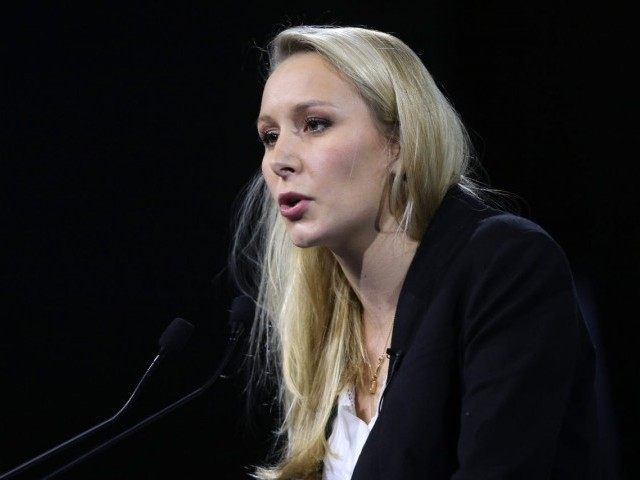France’s far-right National Front (FN) might have failed to win a single region in elections but its high score ties the hands of the two main parties with presidential elections 16 months away, observers said Monday.
The anti-immigration party’s hopes of winning control of its first ever region were dashed on Sunday as voters turned out in force and switched their support to the centre-right Republicans and the Socialists of President Francois Hollande.
Despite being relegated to third place, the FN recorded its best-ever electoral score with 6.8 million votes.
The party’s leader Marine Le Pen blasted the blocking tactics of the main parties and told supporters: “Nothing can stop us now.”
“By tripling our number of councillors, we will be the main opposition force in most of the regions of France,” she said.
The FN had led in six of 13 regions after the first round on December 6, propelled by anger over the moribund economy and fears sparked by last month’s jihadist attacks in Paris that left 130 dead.
But on Sunday, the centre-right alliance of former president Nicolas Sarkozy took seven regions and the ruling Socialists won in five.
Key to the victory over the FN was the Socialists’ decision to withdraw their candidates in the northern region where Le Pen was standing and in the south where her 26-year-old niece Marion Marechal Le Pen led the FN list.
That avoided diluting the vote and gave the centre-right candidates a clear run.
– ‘Dam will break’ –
Analysts said the traditional parties had little to celebrate.
“The dam has held for the time being but the FN is making consistent progress in this country and at some point, the dam is going to break,” political analyst Stephane Rozes of the CAP think tank said.
The reverse from the first round of voting on December 6 was stark — Marine Le Pen scored just over 42 percent in the economically depressed Nord-Pas-de-Calais-Picardie compared to nearly 58 percent for her centre-right rival Xavier Bertrand.
Yet in the first round she had scored 15 percent more than him.
In Provence-Alpes-Cote d’Azur on the south coast, the younger Le Pen was beaten by her centre-right rival by nearly 55 percent to 45 percent.
She had taken a commanding lead in the first round.
A former conservative prime minister, Francois Fillon, warned that Sunday’s results “cannot wipe away December 6, which remains the true barometer of the state of the country.”
The left-leaning Liberation newspaper said in an editorial that it was fear of the far-right which had mobilised the left, rather than any renewed enthusiasm for the Socialists.
The editorial urged the political class to come up with fresh ideas — and fast.
“We have a year to begin rehabilitating political action (in France),” it said.
The Catholic newspaper La Croix said in its editorial: “If answers are not found to French people’s concerns, the National Front will continue its progression until the presidential election.”
The FN had hoped the regional polls would be a springboard for Le Pen’s bid for the presidency in 2017.
Polls still show she would win the most votes in the first round of that election. But like on Sunday, her problem is likely to be the second round.
Her father and the FN’s co-founder Jean-Marie Le Pen rocked the French establishment by reaching the second round of the 2002 presidential election but was defeated by Jacques Chirac as voters threw their support behind the mainstream candidate.
While many voters dislike the main parties banding together to defeat the far-right, another former conservative prime minister, Jean-Pierre Raffarin, said he believed the Republicans had no choice but to work with the Socialist government “because the National Front is a common enemy”.
“We have to beat (the FN) through action and therefore there will be things we can do together,” Raffarin told BFMTV.

COMMENTS
Please let us know if you're having issues with commenting.